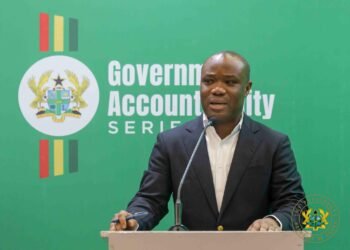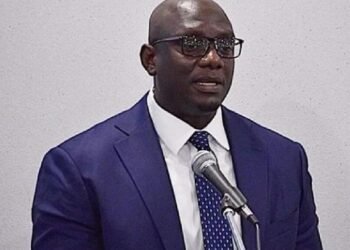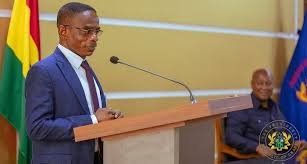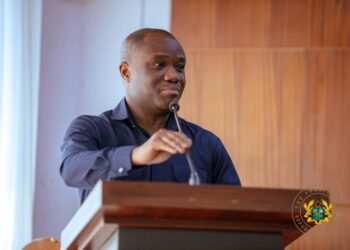The release of the first tranche of the District Assemblies Common Fund (DACF), accompanied by central government directives on its utilization, has drawn concern from governance expert Dr. Frederick Oduro, who criticized the increasing control over local assemblies.
He argued that such interference could hinder the assemblies’ performance in their designated development priorities.
According to him, each assembly has its own set of key focus areas, and it is not within the Finance Minister’s mandate to determine which projects take precedence.
Dr. Oduro emphasized that rather than prescribing how the DACF should be spent, the central government should focus on promoting accountability and ensuring that assemblies are adequately equipped to function effectively.
He pointed out that development needs vary widely across districts, making a one-size-fits-all directive impractical.
Dr. Oduro also criticized the current allocation, highlighting that 5% of national revenue earmarked for the DACF is insufficient to meet the diverse needs of the assemblies.
Additionally, he noted disparities in internally generated revenue among districts. While some assemblies are able to mobilize local funds, others, particularly in less economically vibrant areas, struggle to do so.

As such, Dr. Oduro called for a reevaluation of how the funds are distributed to ensure a more equitable and effective support system for all assemblies.
“I am very uncomfortable with this arrangement because we say we practicing decentralization. The Assemblies themselves have the power under our laws to prepare their own budget, and everybody who prepares a budget will tell you that you look at your areas of priority. The needs of each district are not the same. Every area has got their own peculiar challenges and needs, so what will be a priority for AMA may not be the same as you go to a very rural district”.
Dr. Frederick Oduro
Accordingly, he questioned the impact of receiving direct instructions on how to spend funds, asking what happens to the Assembly’s carefully prepared budget for the year.
He wondered if they were expected to disregard their budget plans, and what should be done if the Assembly’s budget does not include certain items due to the new guidelines they are given.
DACF Delays Expose Economic Viability Concerns
Meanwhile, the timely disbursement of the DACF is not always guaranteed, with delays often occurring before the funds reach the accounts of the various assemblies.
Addressing how assemblies can operate efficiently while awaiting the central government’s release of the common fund, Dr. Oduro pointed out that the very existence of some assemblies is questionable.

He argued that, considering their economic viability, some assemblies should not exist. They lack clear guidelines on generating internal funds during the wait for common fund disbursements, which are often delayed or uncertain.
“We need to question the basis for the establishment of some assemblies. Because one of the key considerations for the establishment of an assembly is economic viability. That is the ability to generate enough resources from within their own area so that the common fund would have come in as a complement to what they get. So that is one question that has been hanging over our local governance for quite a long while.
“Let us be frank with ourselves, the assemblies themselves have failed to mobilize the resources they have in their areas. You go to certain places; the whole internally generated funding resources are fraught with challenges. Some corrupt challenges, some weak systems, and many other problems that they have there. Some don’t even have the right people to engage in revenue mobilization, and the kind of systems they put in place don’t support effective collection of local revenue.”
Dr. Frederick Oduro
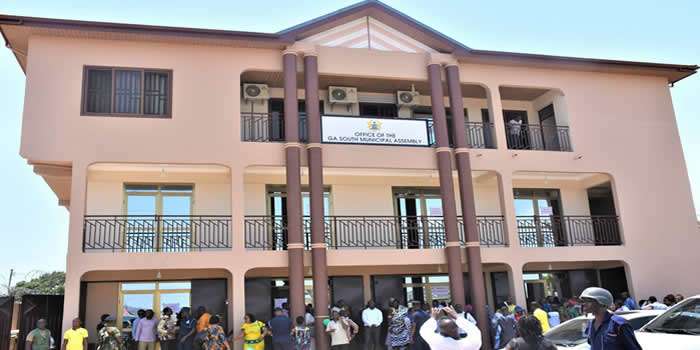
He therefore urged the various assemblies to establish systems that prevent financial leakages from internally generated funds.
Despite the insufficiency of these funds, they often end up in the hands of individuals, leaving the assemblies financially weakened.
According to the Ministry of Finance, the District Assemblies Common Fund, which Dr. Oduro described as a meagre Ghs 25 million, should be allocated as follows: 10% for constructing health facilities, including a minimum of one Community Health Planning and Services (CHPS) compound per assembly; 10% for educational infrastructure, which must cover one kindergarten block, one primary school, and one junior high school.
The remaining funds are to be divided as follows: 10% for providing potable drinking water, with at least 10 boreholes dug in each assembly; 10% for sanitation; 10% for school furniture; and 5% for administrative costs, including monitoring and evaluation.
READ ALSO: Regina Daniels Accuses Angela Okorie of Chasing Her Husband




